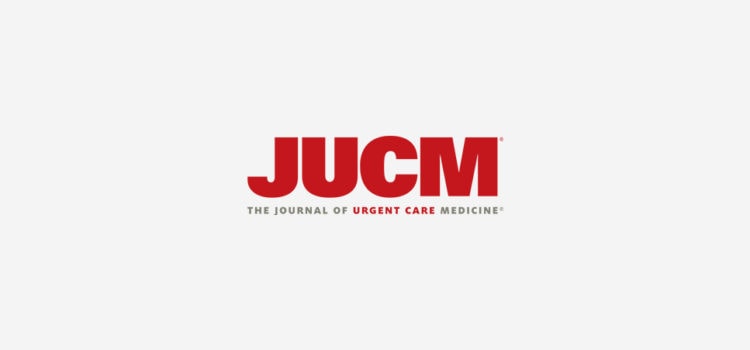Eliminating disruption, distraction, and dissatisfaction is paramount to delivering efficient and high-quality care these days. More than ever, urgent cares are competing to differentiate themselves by moving patients through the encounter faster and with a more reliably exceptional experience. We’ve adopted slick technologies and reconfigured work flows to improve care delivery. So, why do our teams still struggle with consistency? Why do we still see high levels of burnout and turnover—and what can we do …
Read MoreSlow Medicine: ‘Unprescribing’ America
#TimesUp; #NeverAgain; #Privacy; #OpioidCrisis; #BlackLivesMatter…. The last year has been a dramatic one for turning points in long-festering social issues. For decades, we turned our cultural cheek on problems we knew existed (misogyny and bias) or should have seen coming (opioids, mass killings and privacy). But in 2017 and into 2018 we are witnessing a tidal wave of resistance and public denunciations against the ugly side of American life. A collective enough is enough echoes …
Read More
Chasing Flu: Predictably Unpredictable
I have managed urgent cares for nearly 20 years and can officially say that predicting flu is for fools! Perhaps I should have known—after all, the CDC, WHO, ACIP and even Google all get it wrong, with spectacular consistency. Despite all the research, public and private money, and sophisticated analytics, we just can’t seem to find a way to predict the behavior of a fairly banal collection of viral RNA wrapped in a host membrane …
Read MoreThe Change Gang: Adopting a Disruptive Culture
We’ve all heard it: Why do we have to change? This is the way we’ve always done things! Change is difficult, even for those of us who embrace it. But it is especially difficult for non-owner employees. After all, why welcome the discomfort and uncertainty of change if there is no upside to your personal bottom line? This is perhaps one of the biggest challenges we face as the urgent care industry matures and competition …
Read MoreHiring Right Requires the Right Approach
Employing an organizational psychologist or paying for expensive employee screening services is simply not in the cards for most urgent care centers. Yet, hiring “right” is perhaps the most important thing we do and the implications on our practices are considerable. Here are just a few of the areas most impacted by our talent acquisition success (or failure): Risk, quality, and liability Patient satisfaction Operations and work flow Culture Now let’s look a little more …
Read MoreExpectations Disease
There are a few things from residency training that resonated so profoundly for me that they permeate everything I have done since. I will never forget my first delivery, not because I thought I would ever deliver babies in my practice, but because of the emotional and enduring collision of medicine and nature it represented for me. And who can forget the 36-hour shifts (now extinct) that I am quick to recount for young clinicians …
Read MoreFrom Don’t Be Evil to Do the Right Thing: The Code of Conduct Evolution
In the year 2000, Google famously adopted the corporate code of conduct motto, Don’t Be Evil to represent its approach to both business and workplace behavior. At the time, the approach seemed sensible, but today it feels strikingly out of touch. It’s a low bar that misses the mark on one of the most pressing issues of our time: respect and freedom from harassment, at work, at home, and at play. Don’t be evil is …
Read MoreOpioid Crisis: What Next, and What’s Lurking?
It pains me to write this column. The opioid epidemic is arguably the most catastrophic and enduring public health crisis since the flu epidemic of 1918—yes, even worse than the HIV/AIDS epidemic of the ‘80s. Since 2000, over 200,000 people have died from overdoses of prescription opioids alone, another 300,000 from heroin and synthetic opioids. Now synthetic fentanyl has infiltrated the market with the most toxic opioid ever known. The overdose death curve is steepening. …
Read MoreRegulatory Creep: An Urgent Care Response
Connecticut Democrats Seek Regulations for Urgent Care Centers. When this alert hit my inbox, I must say it was a bit alarming. Whenever I see “urgent care” and “regulations” in the news it’s unsettling to say the least. I am probably not alone. The regulatory rumblings have come and gone before, but this one has me more concerned. Here’s a little background: Connecticut legislators and the state Department of Public Health (CDPH) have been interested …
Read MoreDoing the MACRA’ena—Part II
In my last column, I tried to explain the complicated math involved in calculating the potential financial impact of MACRA/MIPS on urgent care centers. I made the case for a significant return on investment for a typical urgent care with a typical mix of Medicare patients. Of course, all of the potential return depends on implementation of practical and efficient quality improvement programs that meet the measurement and reporting expectations outlined by the Centers for …
Read More